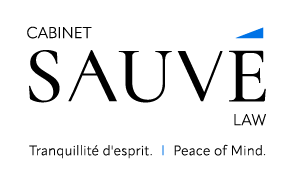Secure Your Future: An Essential Guide to Powers of Attorney in Ontario
Beyond A Will: Your Essential Ontario Guide to Powers of Attorney for Lasting Peace of Mind
Life is unpredictable. While we hope for the best, it’s wise to prepare for the unexpected. One of the most important steps you can take to safeguard your future and provide true peace of mind for yourself and your loved ones is to establish Powers of Attorney (POAs). In Ontario, these legal documents are not just for the elderly or the infirm; they are a vital component of comprehensive estate planning for every adult.
At Sauvé Law, we understand that legal jargon can be daunting. This guide aims to demystify Powers of Attorney, explaining what they are, why they are essential in Ontario, and how they can empower you and your family.
What is a Power of Attorney?
Simply put, a Power of Attorney (POA) is a legal document that allows you to appoint someone you trust – known as your "attorney" – to make decisions on your behalf. This "attorney" does not need to be a lawyer; they can be a family member, a trusted friend, or anyone you designate to act in your best interests.
The fundamental purpose of a POA is to ensure that your financial affairs and personal care wishes are managed according to your instructions, even if you become unable to manage them yourself due to illness, injury, or absence. This proactive step helps maintain control over your life when you might otherwise lose it, offering immense peace of mind.
The Two Pillars of Power of Attorney in Ontario
In Ontario, there are two primary types of Powers of Attorney, each serving a distinct but equally crucial role:
- Continuing Power of Attorney for Property (CPOA)
A Continuing Power of Attorney for Property grants your chosen attorney the authority to manage your financial affairs. This can include a wide range of responsibilities, such as:
- Paying bills and managing expenses: Ensuring your utilities, mortgage, and other financial obligations are met.
- Managing bank accounts and investments: Making deposits, withdrawals, and investment decisions.
- Collecting income: Receiving pensions, rental income, or other monies owed to you.
- Buying or selling property: Handling real estate transactions on your behalf.
- Filing tax returns: Ensuring your tax obligations are met.
The key feature of a Continuing Power of Attorney for Property is that it remains valid even if you become mentally incapable of managing your own affairs. This makes it an incredibly powerful and important tool for long-term planning. Without it, should you lose capacity, your loved ones might have to go through a lengthy and costly court process to be appointed as your guardian, causing unnecessary stress and delay.
2. Power of Attorney for Personal Care (POAPC)
A Power of Attorney for Personal Care focuses on decisions related to your health and personal well-being. Your attorney for personal care can make choices regarding:
- Medical treatment: Consenting to or refusing medical procedures, medications, and therapies.
- Housing: Deciding where you will live, including whether you need to move to a long-term care facility.
- Nutrition and hygiene: Making decisions about your diet, personal care, and safety.
- Other aspects of personal life: Ensuring your daily needs are met.
This document becomes active only if you are deemed mentally incapable of making these decisions for yourself. It ensures that your personal values and wishes regarding your care are honoured by someone who knows you best and whom you trust implicitly. This is particularly vital for end-of-life decisions, where your advance directives can provide clear guidance, bringing peace of mind to both you and your family.
Why Is a Power of Attorney a Good Idea?
Having Powers of Attorney in place is not just a legal formality; it's a profound act of foresight and care. Here's why it's an indispensable part of your personal planning:
- Avoids Court Intervention: Without a POA, if you become mentally incapacitated, your family might have to apply to the court to be appointed as your guardian (for property) or substitute decision-maker (for personal care). This process is often expensive, time-consuming, and emotionally draining, adding significant burden during an already difficult time. A valid POA bypasses this entirely, ensuring a smooth transition of decision-making.
- Ensures Your Wishes Are Respected: A POA allows you to explicitly state your preferences regarding your financial management and personal care. This means that even if you can't communicate, the person you've chosen will act according to your values and instructions, rather than making assumptions or facing difficult choices without guidance. This control over your future provides immense peace of mind.
- Prevents Family Conflicts: When there's no clear legal document, family members may disagree on who should make decisions for you or what those decisions should be. This can lead to strained relationships and legal disputes. POAs eliminate this ambiguity by clearly designating your chosen decision-makers.
- Provides Flexibility and Control: You can tailor your POAs to be as broad or as specific as you wish. You can include limitations, conditions, or specific instructions for your attorney to follow. You can also name alternate attorneys in case your primary choice is unable or unwilling to act.
- Safeguards Your Assets: A Continuing Power of Attorney for Property ensures that your financial affairs are managed competently and responsibly. Your attorney can access funds, pay bills, and manage investments, protecting your assets from neglect or mismanagement.
- Timely Decision-Making: In emergency situations, immediate decisions may be required. With a POA, your attorney can act quickly, ensuring your health and financial well-being are protected without delay.
Powers of Attorney: An Essential Pillar of Estate Planning
Many people focus solely on drafting a Will as their primary estate planning document. While a Will is indeed crucial for dictating how your assets will be distributed after your death, it's important to understand its limitations. A Will only comes into effect upon your passing.
This is where Powers of Attorney bridge a critical gap. They are designed to manage your affairs during your lifetime if you become unable to do so. Therefore, a comprehensive estate plan in Ontario should always include:
- A Last Will and Testament: To outline how your assets are distributed after your death and appoint an Executor.
- A Continuing Power of Attorney for Property: To manage your finances and assets if you become incapacitated.
- A Power of Attorney for Personal Care: To make decisions about your health and well-being if you become incapacitated.
Together, these documents create a robust framework that protects you, your loved ones, and your assets, both during your lifetime and beyond. This holistic approach to
estate planning ensures complete
peace of mind.
Choosing Your Attorney: A Decision of Trust
Selecting the right person or people to act as your attorney is perhaps the most critical step in establishing your POAs. This individual (or individuals) will have significant authority over your life and assets, so choose wisely. Here are key considerations:
- Trust and Integrity: This is paramount. Your attorney must be someone you trust implicitly to act honestly and in your best interests.
- Reliability and Availability: Your attorney should be willing and able to take on this significant responsibility and be available to act when needed, potentially on short notice.
- Understanding Your Wishes: It's vital that your chosen attorney understands your values, preferences, and desires, especially concerning your personal care and financial management. Have open and honest discussions with them.
- Financial Competence (for Property POA): If appointing for property, ensure they are financially responsible and capable of managing your assets.
- Ability to Make Difficult Decisions (for Personal Care POA): Your attorney for personal care may face emotionally challenging decisions regarding your health. Choose someone who can remain calm and rational under pressure, always prioritizing your stated wishes.
- Consider a Substitute: Always name one or more alternate attorneys in your documents. This ensures continuity if your primary attorney is unable or unwilling to act.
- Residency: While not legally required, it is often practical to appoint an attorney who resides in Ontario or at least in Canada, making it easier for them to manage your affairs.
Essential Requirements for a Valid POA in Ontario
For your Power of Attorney to be legally binding in Ontario, several requirements must be met:
- Capacity: You must be mentally capable at the time of signing the document. This means understanding the nature and effect of granting a POA.
- Age:
- For a Power of Attorney for Property, you must be at least 18 years old.
- For a Power of Attorney for Personal Care, you must be at least 16 years old.
- In Writing: The POA must be in writing, or in digital document form.
- Signed and Witnessed: You must sign the document in the presence of two independent witnesses. These witnesses cannot be your attorney, your attorney's spouse, your children, or anyone who stands to benefit from your estate.
Common Misconceptions to Clarify
- "Living Will" vs. POA for Personal Care: In Ontario, the term "Living Will" is often used informally to describe wishes about future healthcare. Legally, these wishes are best expressed within a Power of Attorney for Personal Care or as an "advance directive" attached to it. The POA for Personal Care gives someone the authority to act on those wishes.
- "My Spouse Can Automatically Step In": This is a common and dangerous misconception. Without a valid POA for Property, your spouse (or other family members) cannot automatically access your bank accounts or make financial decisions on your behalf if you become incapacitated.
- "POAs are only for the Elderly": Accidents and sudden illnesses can happen at any age. Having POAs in place is crucial for any adult, regardless of age or health status.
Take the Next Step Towards Peace of Mind
Navigating the complexities of Powers of Attorney and estate planning can seem overwhelming, but you don't have to do it alone. Preparing these crucial documents is an investment in your future and an act of care for your loved ones. It provides a profound sense of security, knowing that your affairs will be managed according to your wishes, no matter what life brings.
Partner with Cabinet Sauvé Law TO ASSIST YOU WITH ALL OF POWERS OF ATTORNEY AND ESTATE PLANNING NEEDS
At Sauvé Law, we are committed to helping you achieve that peace of mind. Our experienced team can guide you through the process, ensuring your Powers of Attorney are tailored to your unique circumstances and comply with all Ontario legal requirements.
Don't wait until it is too late to set your affairs in order. Contact us today to discuss your estate planning needs and take this essential step towards securing your future.




